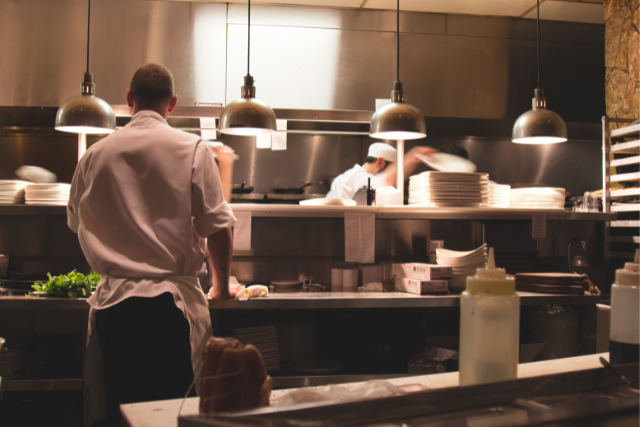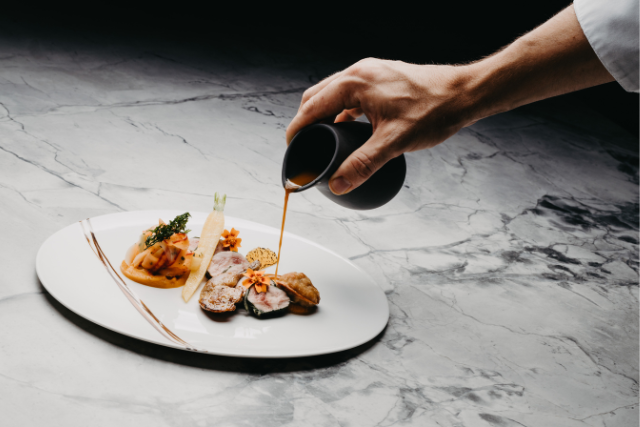
Starting a restaurant is an exciting but challenging journey. With so many dining options, standing out takes more than just great food. It requires strategic planning, financial expertise, and adapting to industry trends. That’s why many successful restaurant owners invest in building a strong foundation in both culinary skills and business knowledge.
A culinary arts degree from institutions like CCA Manila provides that foundation. It goes beyond cooking techniques, menu development, kitchen management, customer service, and financial planning. Let’s explore how this education prepares future restaurant owners to navigate the competitive industry confidently.
1. Culinary Techniques and Kitchen Operations
A smooth-running kitchen is the heart of any great restaurant. Even the best restaurant concept can struggle without solid kitchen skills and organization. A diploma in culinary arts gives future restaurant owners the technical know-how to run a professional kitchen, from perfecting classic cooking techniques to staying on top of food safety standards. This training ensures high food quality and efficiency—must-haves in a competitive market.
2. Menu Development and Cost Control
A great menu must be financially sustainable. Culinary arts courses teach how to design menus that balance flavor, presentation, and cost. Ingredient selection, portion control, and pricing strategies all ensure that each dish contributes to the restaurant’s success. Without a solid understanding of food costs, it’s easy to end up with dishes that are either too expensive for customers or not profitable enough for the business.
3. Leadership and Team Building
What keeps a restaurant running smoothly? A strong team that knows how to work together, even in the middle of a hectic service! Managing chefs, servers, and kitchen staff takes more than giving orders. Clear communication, quick problem-solving, and motivation of the team matter. Without strong leadership, things can unravel fast. Creating a productive work environment where everyone understands their role is as important as perfecting a dish.
To add, a culinary arts degree at CCA Manila builds the leadership and management skills needed to run a team effectively. Strong leadership creates a workplace where employees perform at their best, service runs smoothly, and customers enjoy a great dining experience.
4. Market Trends
Food trends change quickly, and keeping up with industry shifts is essential for long-term success. Customer preferences, dining habits, and technology are critical in shaping the market. Restaurants that fail to evolve risk falling behind, while those that embrace change stay competitive.
Culinary schools introduce students to emerging trends, from plant-based menus and sustainable sourcing to advancements in kitchen technology and digital ordering systems. Exposure to these developments helps future restaurant owners anticipate customer demands, refine their offerings, and implement new ideas that attract modern diners.
5. Customer Experience and Restaurant Branding
Great food alone does not make a restaurant successful. The overall experience is what keeps people coming back. From the moment guests walk in, everything they see, hear, and feel shapes their impression. A warm welcome from the staff, a comfortable and well-designed space, and an atmosphere that matches the restaurant’s identity all contribute to how guests perceive their visit.
Culinary training emphasizes how these elements work together. How a space is designed affects the flow of service and how guests interact with their surroundings. Branding plays a role in recognition and loyalty, creating a strong identity that makes a restaurant stand out. Small details, from lighting and music to menu design and table settings, add to the overall ambiance. Each of these choices influences how guests experience their meals.
When service is seamless, the atmosphere is inviting, and the restaurant’s identity is clear, guests feel more connected to the place.
Diploma in Culinary Arts & Technology Management: Preparing You for the Restaurant Industry

The Diploma in Culinary Arts & Technology Management at CCA Manila is designed for people who want more than solid cooking skills. It builds technical ability alongside the knowledge needed to manage a kitchen and run a business—two things that can’t be separated when you’re serious about starting your own place.
Foundation First
Students begin with the fundamentals. The program covers essential techniques in professional kitchens, like knife work, food safety, and traditional and modern cooking methods. It also introduces sustainable kitchen practices early on—teaching students how to limit waste, use responsibly sourced ingredients, and make choices that matter to today’s diners.
Training That Reflects the Industry
Alongside culinary training, students explore how a kitchen functions within a business. They learn how to manage staff, control inventory, organize kitchen flow, price menus effectively, and keep service smooth from start to finish. It’s about understanding how the entire operation runs and learning to make smart decisions under pressure.
Experience That Builds Confidence
Learning happens in and out of the classroom. Students take part in real dining events and catering functions that mirror the fast pace of professional kitchens. These experiences teach them how to move efficiently, work with a team, and stay flexible when things don’t go as planned. They also participate in culinary tours and events that expose them to current trends and inspire ideas for their future ventures.
Business Skills That Make the Difference
On the business side, students get used to working with budgets, costing recipes, and analyzing performance. They lead projects, work through team challenges, and build the communication and leadership skills that matter when managing people. The focus stays on long-term thinking—adapting, planning, and spotting the right moment to act.
A Clearer Path Forward
Graduates are prepared to step into many roles. Some join professional kitchens to deepen their experience, while others start planning and launching their food businesses. The training also supports roles that blend creativity with oversight, like executive or corporate chefs expected to lead in the kitchen and behind the scenes.
Your Path to Restaurant Ownership Starts at CCA Manila!

Manila’s food scene is exciting and full of opportunities, but standing out takes more than passion. At CCA Manila, we help aspiring culinary professionals build the skills they need to succeed in a competitive industry.
Our Diploma in Culinary Arts & Technology Management program combines hands-on training with the business knowledge essential for lasting success. Understanding food costs, managing kitchen operations, and creating a brand that connects with people are just as important as perfecting recipes. With the right foundation, you can confidently take on the industry’s challenges and carve out your place.
Start building your future in food. Visit CCA Manila’s website or contact us today to begin your journey.
